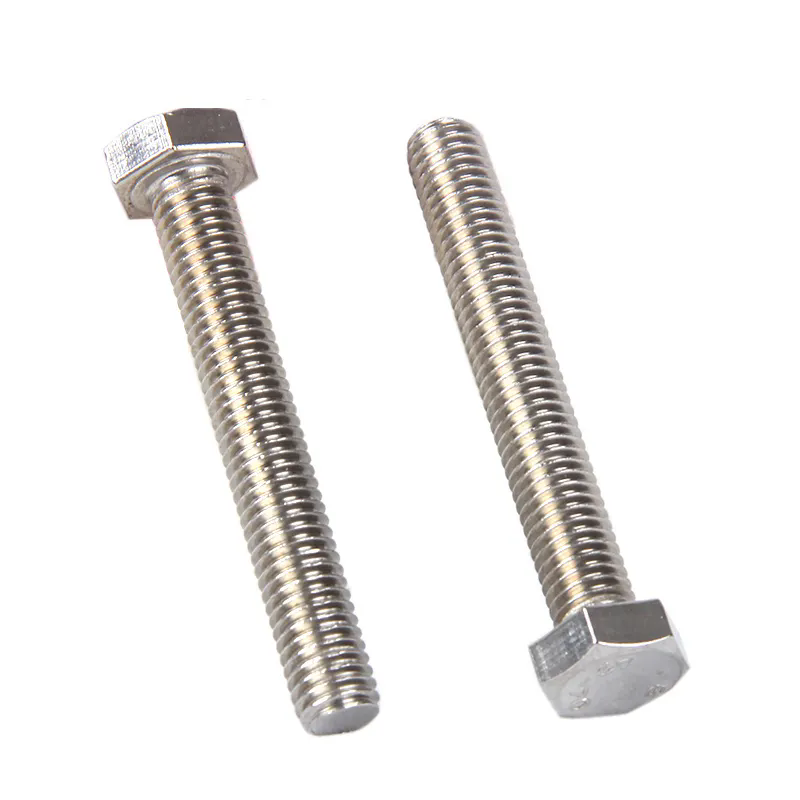Machine Screws: The Unsung Heroes of Mechanical Assembly
2024-08-23
In the world of mechanical engineering and assembly, machine screws are essential yet often overlooked components that play a crucial role in fastening and securing parts. These versatile fasteners are used in a wide range of applications, from household appliances to complex machinery. In this blog, we’ll explore what machine screws are, their various types and applications, and why they are indispensable in the world of assembly and manufacturing.
What is a Machine Screw?
A machine screw is a type of fastener characterized by its threaded shaft and a flat head. It is designed to be inserted into a pre-tapped hole or used with a nut to secure two or more components together. Unlike other types of screws, machine screws are primarily used in machinery and equipment where precise and secure fastening is required.
Machine screws are available in various sizes, materials, and thread patterns to accommodate different needs. They are commonly made from materials like steel, stainless steel, brass, and aluminum, each offering different properties such as strength, corrosion resistance, and weight.
Types of Machine Screws
Machine screws come in a variety of types, each suited for specific applications. Here are some common types:
1. Flat Head Machine Screws: These screws have a flat, countersunk head that allows them to sit flush with the surface. They are often used in applications where a smooth, finished appearance is important.
2. Pan Head Machine Screws: Featuring a rounded head with a slightly domed shape, pan head machine screws are designed for applications where the screw will be visible. They offer a larger bearing surface and are used in assemblies where a strong clamping force is needed.
3. Hex Head Machine Screws: Hex head machine screws have a hexagonal head that can be tightened with a wrench or socket. They are often used in heavy-duty applications where a high torque is required.
4. Button Head Machine Screws: These screws have a low-profile, rounded head that provides a clean, modern appearance. They are commonly used in electronics and automotive applications.
5. Round Head Machine Screws: With a full, rounded head, these screws provide a traditional look and are often used in applications where appearance is less critical but strength is still important.
6. Socket Head Machine Screws: Featuring a recessed hexagon drive, socket head screws are designed for use with Allen wrenches. They are often used in precision machinery and applications requiring high torque.
7. Set Screws: Set screws are used to secure an object within or against another object, typically without the use of a nut. They are commonly used in mechanical assemblies where the screw needs to lock a component in place.
Benefits of Machine Screws
1. Precision and Strength: Machine screws provide precise and strong fastening, making them ideal for applications where accuracy and reliability are critical.
2. Versatility: Available in a wide range of sizes and materials, machine screws can be used in various applications, from small electronics to large industrial machinery.
3. Ease of Installation: Machine screws can be easily installed and removed with standard tools, allowing for quick assembly and maintenance.
4. Durability: Made from high-quality materials, machine screws offer excellent durability and resistance to wear, corrosion, and stress.
5. Customizability: Machine screws can be customized with different thread patterns, lengths, and coatings to meet specific requirements and ensure optimal performance.
Applications of Machine Screws
1. Automotive Industry: Machine screws are used extensively in the automotive industry to assemble and secure components such as engine parts, body panels, and interior fittings.
2. Electronics: In electronics, machine screws are used to secure circuit boards, enclosures, and other components. Their precision and reliability are essential for maintaining the functionality of electronic devices.
3. Aerospace: Machine screws play a critical role in aerospace applications, where high strength and durability are required to withstand extreme conditions and ensure the safety of aircraft and spacecraft.
4. Construction: In construction, machine screws are used to fasten structural components, fixtures, and fittings. Their strength and resistance to environmental factors make them suitable for demanding construction projects.
5. Manufacturing: Machine screws are integral to various manufacturing processes, including the assembly of machinery, equipment, and tools. They provide reliable and secure connections in complex mechanical systems.
6. Home Improvement: Machine screws are commonly used in home improvement projects, such as assembling furniture, mounting fixtures, and securing household appliances.
Choosing the Right Machine Screw
When selecting a machine screw for your project, consider the following factors:
1. Material: Choose a material that matches the requirements of your application. For example, stainless steel is ideal for outdoor or corrosive environments, while brass is often used for decorative purposes.
2. Size and Thread: Select the appropriate size and thread pattern for your application. Ensure that the screw fits the pre-tapped hole or is compatible with the nut you plan to use.
3. Head Type: Consider the type of head that best suits your needs. Flat heads are great for a flush finish, while hex heads are ideal for applications requiring high torque.
4. Coating: Some machine screws come with coatings or plating to enhance their resistance to corrosion or provide additional aesthetic appeal. Choose a coating that meets the environmental conditions of your application.
5. Length: Ensure that the length of the machine screw is appropriate for the thickness of the materials being fastened. A screw that is too short may not provide adequate clamping force, while a screw that is too long may interfere with other components.
Conclusion
Machine screws are indispensable components in the world of mechanical assembly, offering precision, strength, and versatility for a wide range of applications. Their various types, materials, and benefits make them suitable for everything from everyday household projects to complex industrial machinery. By understanding the different types of machine screws and their applications, you can make informed decisions and ensure that your assemblies are secure, reliable, and efficient. Whether you’re a DIY enthusiast or a professional engineer, machine screws are the unsung heroes that keep your projects together.



